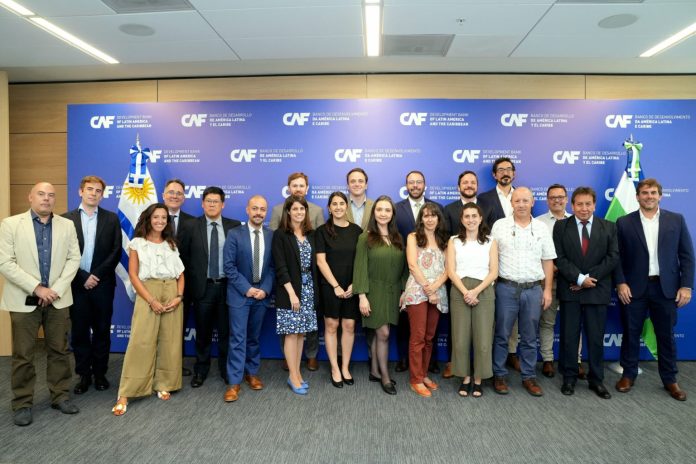Asunción, Agencia IP.- The Paraguayan government reaffirmed its role as a key integrator in the region by participating in the closing of the first phase of the Mercosur Regional Gas Integration Project (PRIGM), which was held in Montevideo.
The Development Bank of Latin America (CAF) and the Latin American Energy Organization (Olade) organized the event, which included representatives from Argentina, Bolivia, Brazil, Chile, Paraguay, and Uruguay.
According to the Ministry of Public Works and Communications (MOPC), a detailed assessment of the future of natural gas in the region was presented as part of the project’s first phase.
Studies revealed a growing trend in gas production in the Neuquén and Rio de Janeiro basins, with significant changes in existing transportation networks. This assessment is crucial for strengthening Mercosur’s energy cooperation.
The Paraguayan delegation was led by Julio Albertini, Director of Hydrocarbons at the Vice Ministry of Mines and Energy (VMME), and Giuliano Franco, an energy specialist. Both representatives highlighted Paraguay’s commitment to energy integration and showcased significant progress in projects that position the country as a key player in the region.
The Bioceanic Gas Pipeline as a landmark project
One of Paraguay’s most significant projects presented was the Bioceanic Gas Pipeline, which will connect Argentina and Brazil through Paraguayan territory.
With an investment of USD 2 billion, the gas pipeline will span 550 kilometers within Paraguay. It will be capable of transporting up to 30 million cubic meters of gas daily, enhancing regional energy security.
During the meeting, representatives from Brazil, Argentina, and Chile expressed their interest in the Bioceanic Gas Pipeline, recognizing its potential to optimize the region’s energy resources.
This infrastructure will strengthen Paraguay’s energy matrix and boost industrial development in the Chaco region, which has significant productive potential.
Paraguay expressed gratitude to CAF and Olade, which have fundamentally promoted regional energy projects. Their continued collaboration remains essential for advancing energy interconnection within Mercosur, contributing to the region’s sustainable development and consolidating a more integrated energy system.

